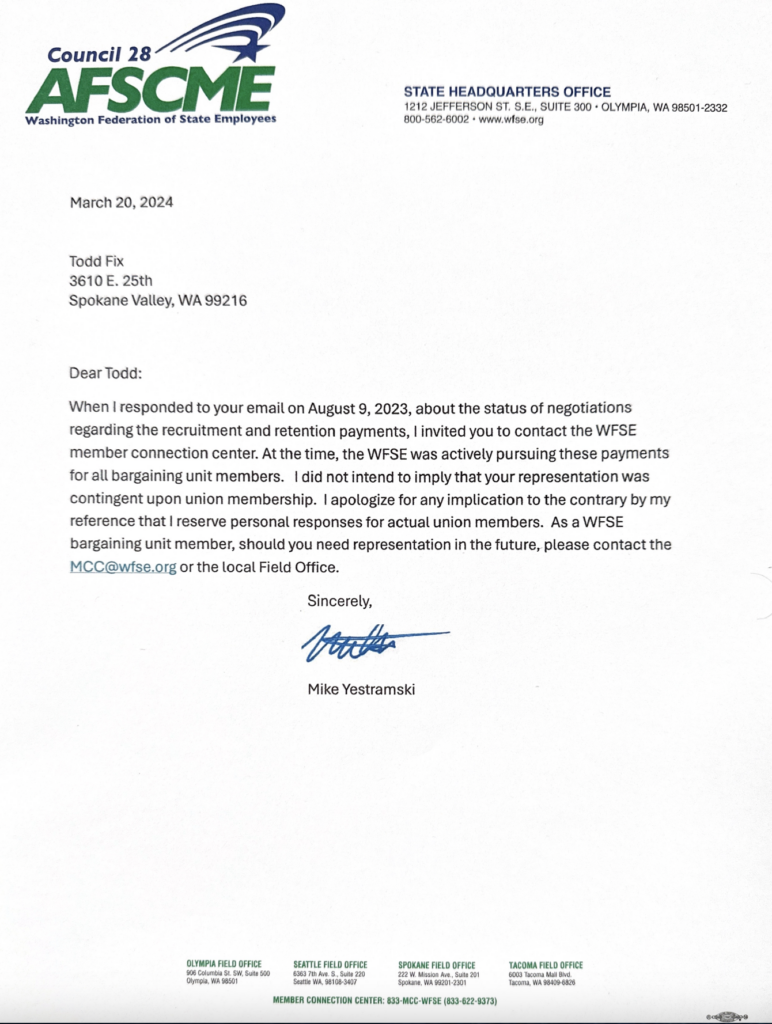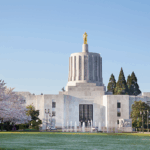Freedom Foundation attorneys during late March secured an apology from Mike Yestramski, president of the Washington Federation of State Employees/ AFSCME Council 28 (WFSE), for implying a Washington state employee’s representation was contingent on waiving his right to opt out of union membership.
The agreement followed an unfair labor practice complaint filed by Freedom Foundation attorneys filed on behalf of Todd Fix, a longtime employee of the Washington Department of Corrections, alleging WFSE engaged in unlawful discrimination and interference with his right not to join the union.
When Fix, who had earlier opted out of union membership and dues, asked Yestramski about a $1,000 bonus and 3 percent raise he was entitled to receive under WFSE’s new collective bargaining agreement with the state, the union leader responded that he only answered questions from active union members and suggested that if Fix wanted information regarding the union’s collective bargaining functions, he could always rejoin.
Under Washington law, however, “(C)ertified exclusive bargaining representative shall be responsible for representing the interests of all employees in the bargaining unit.” (Emphasis added.)
The Washington State Supreme Court, in Allen v. Seattle Police Officers’ Guild, made clear that the right to fair representation is not dependent on a worker’s membership status. Nor is it lawful for an exclusive bargaining representative to “restrain or coerce an employee” in the exercise of their right to not join a union.”
“I needed something I would be able point to the next time I need representation,” Fix said. “This letter gives me security and lets others know the union can’t discriminate against them.”
The irony is that Fix isn’t anti-union per se, and had even negotiated on behalf of WFSE in the past. Fix went out of his way to aid the union in its collective bargaining functions and was mistreated just because he exercised his First Amendment right to opt out.
Fix is just one of many victims of the seemingly despotic power handed to government unions under the guise of exclusive representation. Under this draconian system, government workers are legally barred from seeking representation outside of the union designated as exclusive representative for their bargaining unit.
Unions champion this system and call it “democracy.” However, when a governing body fails to respect the rights of dissenters, the line between democracy and despotism is crossed. As Benjamin Franklin would put it, such an understanding of democracy is analogous to “…two wolves and a lamb voting on what to have for lunch.”
If government unions want such power granted to them, they must also accept the responsibility of representing everyone. Even those no longer subject to union rules or dues demands.









